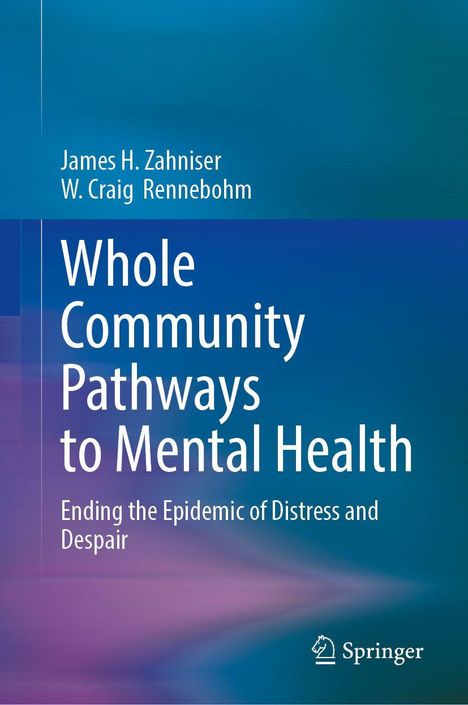James H. Zahniser: Whole Community Pathways to Mental Health, Gebunden
Whole Community Pathways to Mental Health
- Ending the Epidemic of Distress and Despair
(soweit verfügbar beim Lieferanten)
- Verlag:
- Springer, 01/2026
- Einband:
- Gebunden
- Sprache:
- Englisch
- ISBN-13:
- 9783032112637
- Artikelnummer:
- 12494315
- Umfang:
- 308 Seiten
- Gewicht:
- 627 g
- Maße:
- 241 x 160 mm
- Stärke:
- 23 mm
- Erscheinungstermin:
- 3.1.2026
- Hinweis
-
Achtung: Artikel ist nicht in deutscher Sprache!
Klappentext
This book addresses the dire need for mental health professionals, planners, students, and advocates to develop a more comprehensive, whole community approach to reversing the epidemic of suicidality, suicide, substance use, overdoses and other forms of distress and despair. The authors start by reviewing the precipitous increases in "deaths of despair" (suicide, drug overdoses, and alcohol-related deaths), as well as in suicidality, substance use disorder, and other mental health conditions. Their summary goes beyond that of Case and Deaton (in "Deaths of Despair and the Future of Capitalism") by showing the full extent of the epidemic, across the entire array of mental health and substance use conditions. Zahniser and Rennebohm then explain the experience of distress and despair and how distress moves into despair, using depression, suicidality / suicide, and substance use disorders / overdoses as examples. Finally, to close out Part 1, they explicate the various layers of vulnerability to distress and despair and why the loss of social capital and strong social ties best explains the precipitous increases. Part 2 is the heart of the book, and it lays out 7 pathways to reversing the epidemic. These include evidence-based and best-practice approaches to: (1) providing effective natural, community-based support; (2) developing community collaborations between mental health providers and other community organizations (using examples from mental health-faith community partnerships); (3) taking evidence-based prevention and early intervention to scale; (4) integrating mental health into primary health care; (5) developing fully-functioning Certified Community Behavioral Health Clinics; (6) ensuring the availability of intensive recovery support services for children and adults; and (7) providing outreach and engagement services to the most vulnerable community members. Part 3 provides a framework for bringing the 7 pathways together into a comprehensive, coherent mental health improvement effort that can reverse the epidemic in each community. Zahniser and Rennebohm describe the structure and operations of this organized effort, feature examples of communities that have approximated it, and explain what state and national mental health authorities should do to support them. Throughout the book, the authors' own experiences with distress as well as in working with communities to reduce it are featured, along with the voices of other people with lived experience. Numerous examples of successful community collaborations and evidence-based programs are presented. The threads of relationship, community, and collaboration are woven through each chapter.

